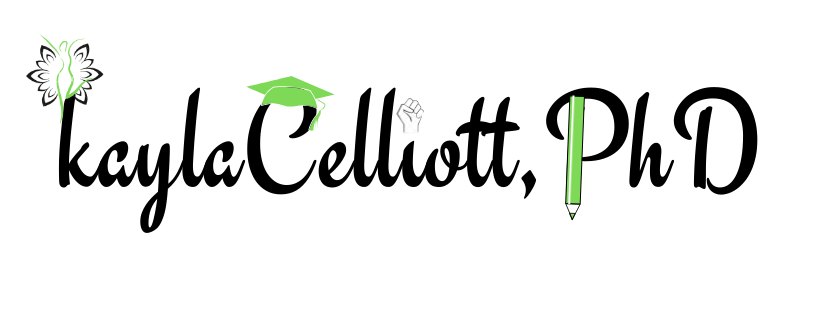One Year with the Lemonade Syllabus
I’m a total bookworm, so when the Lemonade Syllabus dropped a year ago, I was completely and totally enamored. The Syllabus is a collection of fiction, nonfiction, film, scholarship, music, visual art, and poetry inspired by the imagery and message of Beyoncé’s Lemonade visual album. Like the album, the Syllabus and all of the included works are created by and for Black women.
The Lemonade Syllabus easily became one of my favorite things of 2016. I have the link and PDF in my favorites on my laptop and my phone. Over the last year, I’ve texted and emailed them to friends looking for book recommendations, a professor looking for new ways to engage, a classmate looking for resources on Black spirituality, and most recently, my little sister looking for good graduation gifts.
As Candice Marie Benbow writes in the introduction, the Lemonade Syllabus is a testament to the phrase “Black Girls Are Magic”. There is something special created when Black women create together, and a good book is like magic. A good book has the power to teleport you to a different place and time, or hypnotize you into evoking emotions and reactions almost involuntarily. A good book can make new thoughts and ideas develop in your mind like quarters pulled from behind your ear. It can saw you in half, leaving you conflicted with and disconnected from parts of yourself. Like magic, a good book can make you question the truth. The Lemonade Syllabus captured so much of that magic in one place.

Visuals: Parkwood Entertainment; Graphic Design: D. Pickett, LLC; Lemonade Syllabus: Candice Benbow
One of the downsides of being a grad student is that there isn’t much time for leisure reading. One of the upsides is library perks like no limit to the number of books you can check out, a private lounge, and access to the stacks even though the library is closed for painting. I spent last summer in Atlanta for an internship, so before I left, I took my printed copy of the Syllabus and a list I’d pulled from the online catalog and ran around the library avoiding the wet walls. I did the same sprint (without the paint-avoiding maneuvers), before I unplugged for a cruise over Spring Break in March.
In honor of the last year with the Lemonade Syllabus, here are my reviews of a few entries!
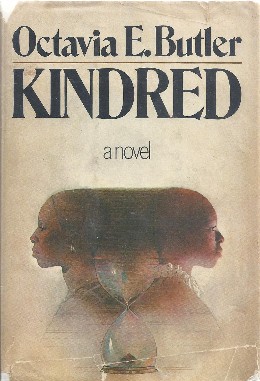
Other avid readers have recommended Kindred to me for years. I did not include it in my haul last summer because I was on a self imposed “boycott of images of Black women’s sorrow” (More on that later). I knew it was about slavery, and left it on my list for later. When a friend of a friend asked if I’d read it a few months ago, it reminded me to move it to the top of my Spring Break list. When I finally got around to it, I finished it in less than 24 hours. I couldn’t put it down. It was GOOD. Like so good, I let my phone die Sunday evening and didn’t get up to try and find the charger until I was done reading Monday morning, GOOD. Kindred is a beautiful, painful story that shows the dangers associated with being a free Black woman. The protagonist sees and struggles with the the complexity and humanity of slaveowners without sanitizing their barbarism. Overall: a moving story about how closely our past and present align.

I was just finishing Black Feminist Thought for a class on critical methods when the Lemonade Syllabus dropped in May of 2016. If, like I did, you have questions on feminism, this is a great place to start. This class and this book came at a time when I was really struggling to find my academic voice. The author purposely presents her research in a manner that is accessible to the Black women she studies and knows. One of the main points centers around the ways in which Black women “speak truth to power” about injustice. This, and the book as a whole, really helped me be comfortable with the difficult process of adding “scholar” alongside my other identities.
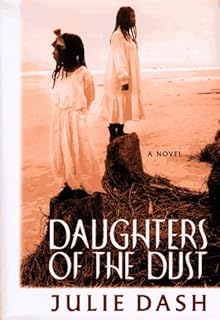
There have plenty of books that have moved me to tears. Until last year, Xenia Ruiz is the only author who made me cry when I learned she hadn’t written other books besides Choose Me. I had the same reaction when I learned Julie Dash had not written other novels besides Daughters of the Dust. There are good writers who can paint the contours of their setting with great detail and nuance. There are great writers who can encourage your own emotional investment in the characters and their story. And then there are writers like Dash who transport you to a different time and place and make you feel like part of the story. Finishing this book felt like saying goodbye after a family reunion.
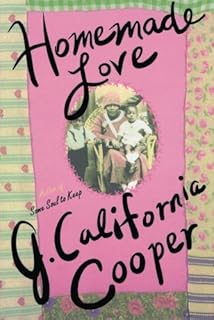
Homemade Love is a collection of short stories, and the first J. California Cooper book I read. It was a lovely introduction to her tone and style. In 2015, I bought bell hook’s children’s book of the same name for two of my nieces. In many ways, Cooper’s book brings about similar feelings as my favorite children’s literature. Like a children’s book, each of the short stories is a simple portrait of love. Each chapter has its own moral and lesson on the ease and work that goes into making a home and building an enduring love.
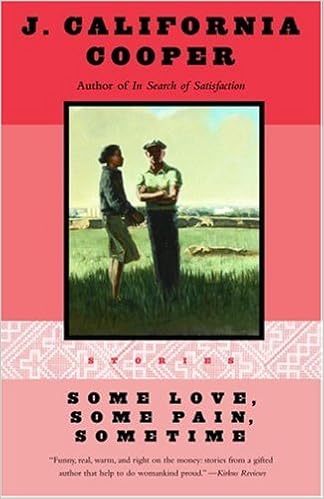
Unlike my previous work building relationships with donors and community members, scholarship can be very solitary and lonely. Most of your time is spent in front of a book or a computer. Most of your energy is spent on your work. The time you spend with others in class is usually high level discussion on abstract concepts and theories, or practical work application and skills. After my first year as a fulltime student, I needed this book’s reminder of the fullness of the human experience more than I realized. Like Homemade Love, Some Love, Some Pain, Sometime is a collection of short stories.

In Search of Satisfaction reminded me of Nowhere is A Place by Bernice McFadden. After I read it, I devoured four more of her novels in a week (You can see a trend here). This story follows the highs, lows, hits, and misses of the inhabitants of a small isolated, segregated town. On their search for satisfaction, each of the characters wrestles with their secrets and sins. These transgressions play out over multiple generations, weaving a story that is folksy, funny, and full of life’s hard lessons.

Chimamanda Ngozi Adichie’s literary acclaim expanded to popular fame in the U.S. when Beyonce included a clip of her TED Talk “We Should All Be Feminists” on her self-titled 2013 album. Americanah is everything, and more. I’m involved in a research project that explores how male students of color perceive oppression and privilege. One of the trends has been the different ways the students shape their Black identify. Growing up in Florida, some of my closest friends’ parents were from Jamaica, Barbados, Haiti, and Trinidad. I have always thought of Blackness as a global diaspora spanning multiple national, ethnic, and cultural identities (though 7 year old me certainly didn’t articulate it in those words). It was wonderful to read how the book’s protagonist grappled with notions of race and identity, as well as her own struggles and successes personally and professionally.

Based on the list thus far, you can tell I gravitate towards fiction and other narratives. After being up to my eyes in theory and methodology preparing for my comprehensive exam, I wanted something soft, delicate, and beautiful to read over Spring Break, so I picked up a few compilations of poetry, including I am a Black Woman by Mari Evans. This was definitely not what I was looking for, but it was wonderful to find. If Julie Dash and J. California Cooper spoke to the aesthetic of Lemonade, Mari Evans spoke to the lyrics. Like the album’s progressive tale of betrayal, hurt, defiance, and forgiveness, I Am a Black Woman conveys the fiery strength of Black women.
“I am a black woman
tall as a cypress
strong
beyond all definition still
defying place
and time
and circumstance
assailed
impervious
indestructible
Look
on me and be
renewed”
That’s my take. Download a copy of the syllabus, grab your library card, and get your summer reading on!
